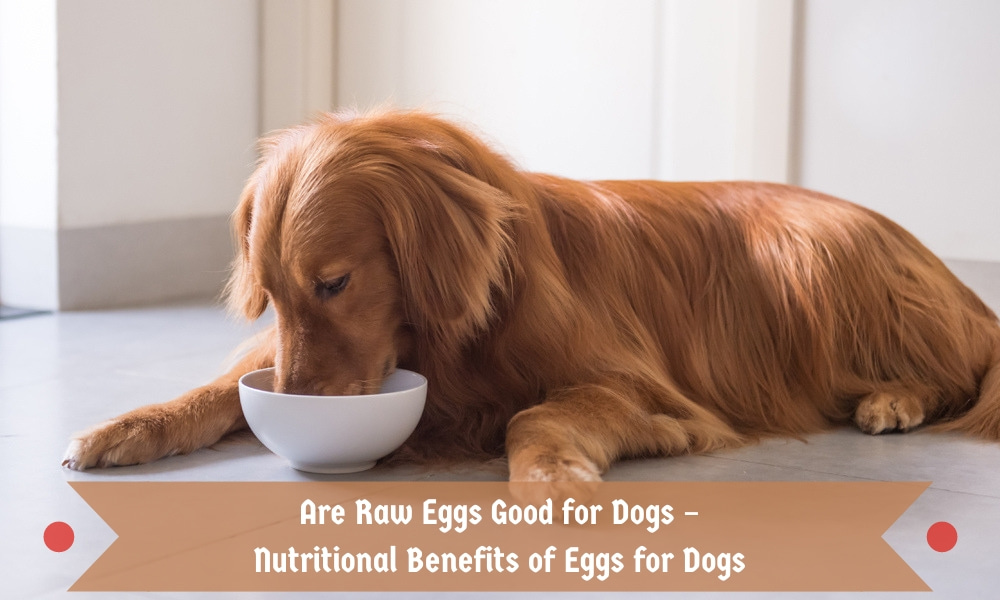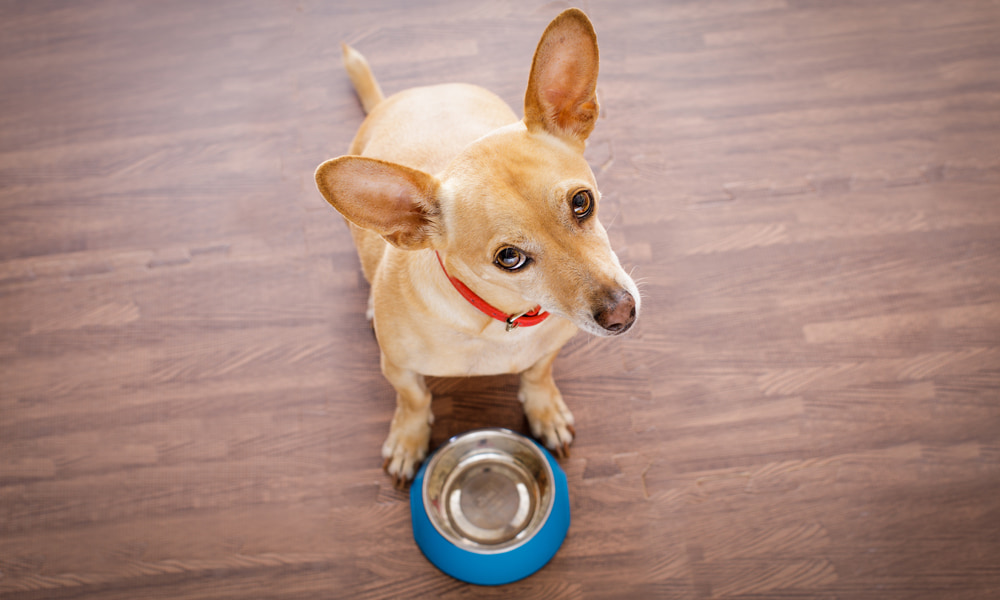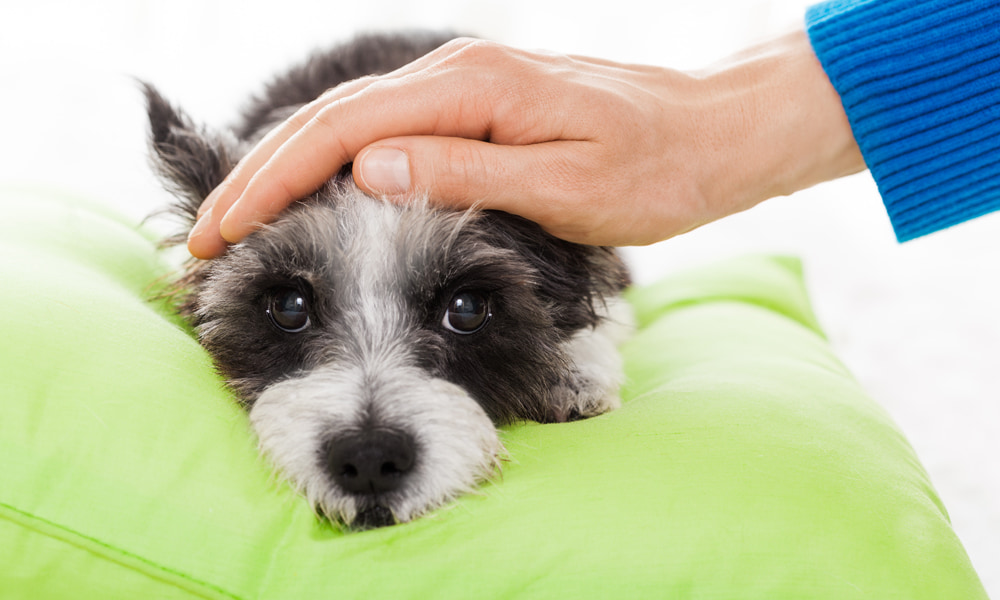
Are raw eggs good for dogs? Well, it depends on who you ask. While some dog owners swear by including raw eggs in their pet’s diet, there is some controversy surrounding raw eggs for dogs. Some vets might encourage it while others advise against it.
There’s no denying that eggs have a lot of nutritional benefits but are raw eggs good for dogs? Let’s take a closer look.
Contents
Are Eggs Healthy for Dogs?
Eggs are a great treat for dogs. They’re full of healthy amino acids, fatty acids, vitamins, and minerals. It might surprise you to know that the eggshell is actually good for dogs, too. Think about it, your pup’s wolf ancestors once stole eggs from nests as part of their regular diet. The shells were an ideal source of calcium that helped grow healthy bones and teeth and aided with digestion.
Are Raw Eggs Good for Dogs?
As mentioned, there’s a little bit of controversy about this topic. Let’s take a closer look at the debate about feeding your dog raw eggs.
Will my dog get food poisoning?
Although the risk is rare, raw eggs can carry salmonella or E. coli and there is a chance that they can make your dog sick. That said, dogs are descended from wolves and their digestive systems are made to handle raw food. Their stomach acids are very acidic and they have a short digestive tract. This means any bacteria that do get in are likely to be killed in the stomach. Plus, there’s not a lot of time for the bacteria to multiply and cause illness, which is what happens in humans. So, the chance of your dog actually getting food poisoning from raw eggs is pretty rare.
If you want to try feeding your dog raw eggs, the best way to avoid E. coli and salmonella is to make sure you get your eggs from a trusted source. If you gave access to organic eggs fresh from a farm, these are a great option for your dog. Whether or not a raw egg is safe largely comes down to the health of the hen. It’s a safe bet that small, local farms take better care of their chickens than those kept in large factory farms that produce eggs for grocery stores.
Are egg whites dangerous?

Source: canva.com
Egg whites contain avidin. Avidin binds with biotin, a healthy B vitamin, and prevents it from being absorbed. Some people argue that this could lead to a biotin deficiency in your dog. Biotin deficiencies result in poor metabolism and a dull, dry coat and skin.
Now, if you fed your dog nothing but egg whites, this could be true. But the egg yolk itself is packed with biotin so, as long as you give your dog the entire egg, it should be fine. Not to mention, your dog should be getting a well-rounded diet that provides enough of the vitamins and minerals it needs to stay healthy.
Can my dog eat the shell?
Yes, your dog can eat the eggshell. As we talked about, your dog’s ancestors once thrived from hunting and scavenging for food, including stealing eggs right from the nest. Their digestive system was designed for raw food and can even break down the bones of small animals. Some people just hand their dog a whole egg and let it nosh away. If you’re planning to try this method, make sure your dog heads outside with the egg – it can get pretty messy.
If your dog has a sensitive stomach or is a miniature or small breed, you might be hesitant to give them a whole egg. They should be fine but you shouldn’t do something you feel uncomfortable with. If you want your dog to try raw eggs, just crack it over some dry dog food. Your dog won’t mind! If you’d rather leave out the shells, you can also grind them into a powder in a food processor and sprinkle them over your dog’s food to make sure you’re getting all the benefits the egg has to offer in your dog’s diet.
Health Benefits of Eggs for Dogs
If you think about it, eggs contain everything needed to grow a new chicken so there are a lot of healthy nutrients inside of them. They’re a complete food source that includes:

Source: canva.com
- Vitamin A. This is a fat-soluble vitamin that’s important for fetal development as well as supporting healthy growth, boosting immune function, and facilitating cellular function.
- Thiamine (B1). Thiamine helps with carbohydrate metabolism and energy.
- Riboflavin (B2), Niacin (B3), and B12. These B vitamins facilitate enzyme function throughout the body.
- Vitamin B6. This is an important vitamin that has a role in generating glucose, maintaining red blood cell and nervous system function, regulating hormones, activating genes, and supporting immune response.
- Folate (B9). Folate has an important role in metabolizing amino acids and nucleotides as well as synthesizing mitochondrial proteins.
- Selenium. Your dog needs trace amounts of selenium for antioxidant production and protection against free radicals.
- Iron. As in humans, iron is needed for the proper production of red blood cells. Not enough iron can result in your dog having iron-deficient anemia.
- Fatty acids. Omega-3 and omega-6 fatty acids are important for a healthy coat and skin. They also support cardiovascular health, fight inflammatory disease, and can slow the development of some cancers.
How to Prepare Eggs for Your Dog
So, we’ve established that it’s most likely healthy to feed your dog raw eggs every once in a while. If you’re not comfortable doing so or if your vet doesn’t recommend it, there are also ways to cook eggs for your pup. While cooked eggs don’t have quite as many vitamins as raw eggs, they’re still a great treat for your dog.
Scrambled and boiled eggs are great for your pup. Try mixing cooked eggs in with your dog’s kibble or even adding them to wet dog food for a treat once or twice a week. Unseasoned poached eggs are fine, too. The only type of egg that should be avoided is a fried egg. The grease can cause tummy troubles and adds a lot of extra calories and fat your dog doesn’t need.
Other People Foods that Are Healthy for Dogs
A lot of dog owners might think that people food is not safe for their dogs but that’s not exactly true. While you should avoid giving your dog too many table scraps – especially sweets and unhealthy fatty and fried foods – there are plenty of human foods that can be incorporated into a healthy diet for your pup.
Apples

Source: canva.com
Apples are a nice treat for dogs, especially a cold one from the fridge on a hot day. Just remember to remove the seeds. Apple seeds contain a form of cyanide that can be dangerous and even fatal for your dog. To be on the safe side, cut the apple into pieces around the core, and avoid giving your dog a whole apple to munch on.
Carrots
Another great snack for dogs is carrots. These crunchy root veggies are loaded with vitamin A, fiber, and beta-carotene and can be given to your dog raw or cooked. Boil them, mash them, and add them to your pup’s kibble or go ahead and give them a whole carrot to gnaw on every now and then.
Peanut Butter
If you’re looking for a special treat for your pup, try a little bit of peanut butter. It’s full of healthy vitamins and minerals, including protein, vitamin B, and vitamin E. Be careful what type of peanut butter you choose, though. Raw, organics, sugar-free, unsalted peanut butter is best because it’s not loaded with extra fats and preservatives. One of the most popular ways to give peanut butter to your dog is by smearing some inside its favorite chew toy.
Pumpkin
Believe it or hot, pumpkin is also a healthy treat for your dog. Cooked, mashed pumpkin is great but canned pumpkin is fine, too. Stick with organic or unsweetened to make sure there aren’t any additives or too much sugar. Mix a little in with your pet’s dry food and they’ll definitely be happy.
How Will I Know if My Dog Is Sick from Eating Raw Eggs?
As we said, it’s unlikely that your dog will get food poisoning from eating raw eggs, especially if you get them from a reliable farm where you know they take good care of their hens. That said, there’s always a chance that something can happen so it’s good to know what to look out for.
We’re going to focus primarily on salmonella here because if your pet gets food poisoning, salmonella is the most likely culprit. Even if you don’t feed your dog raw eggs, they still may get sick from eating something out of the garbage or stealing raw meat off the counter. (Note that the most dangerous food for dogs when it comes to salmonella is raw chicken meat, not raw eggs.)

Source: canva.com
Symptoms of food poisoning in dogs usually appear between six and 72 hours after they ingest the bacteria. The first symptom is usually a high fever followed by vomiting and diarrhea. They won’t want to eat anything and may start acting sluggish or depressed.
One of the big things to look out for any time your dog is sick with vomiting and diarrhea is dehydration which is why food poisoning and other GI illnesses should be taken very seriously, especially if your dog is young, old, or has underlying health problems.
If you suspect your dog has salmonella poisoning, call your vet right away. Keep the dog away from any other pets, animals, and people to avoid spreading the bacteria and getting others sick. Sterilize the areas where your dog has been using a 10:1 water to bleach solution and launder any bedding and toys.
There’s a good chance your vet will want to examine your dog before making a diagnosis. If you know that your dog has eaten raw eggs or meat or has recently gotten into the garbage or come in contact with a dead animal or another animal that’s sick, tell you vet right away.
In some cases, antibiotics are necessary to help clear up the bacterial infection. Your dog may also need IV fluids to treat dehydration. That said, salmonella poisoning isn’t usually fatal and your dog should bounce back in a few weeks.
We really want to make sure we get the point across that your dog is not at high risk for salmonella poisoning from eating raw eggs, especially if you get them from a reputable chicken farm. Your pet is much more likely to get sick from eating chicken or raw meat out of the garbage. Regardless, it’s a good idea to know what to look for and when to get a hold of your vet with any illness.
So, Are Raw Eggs Good for Dogs?
The simple answer is yes, as part of an otherwise healthy and balanced diet. You shouldn’t feed your dog a diet that consists only of raw eggs but giving them a few a week is a healthy treat that your dog will love.
Some people worry about salmonella and E. coli from raw eggs but the truth is that dogs were designed to eat raw food. Their ancestors survived eating things like raw eggs right from the nest and small animals, bones and all.
That said, if you don’t feel comfortable giving your dog raw eggs, that’s fine, too! Cooked eggs also make a nice treat. And, if you run out of treats, you probably have some other foods in your fridge that it’s safe to give your pup.
Talk to your vet. Whether or not you should give your dog raw eggs is a bit of a controversial topic and your vet may have a very strong opinion either way. Plus, you should always check with your veterinarian before making any changes to your pet’s diet.
Source of Featured Image: canva.com
I grew up in a household that was filled with animals. I believe that my fate as a dog-loving person was sealed in early childhood since my parents owned several dogs of varying sizes and breeds. There was no choice but to take care of and learn about dog habits and the best animal care practices — otherwise, I’d be clueless about how to go about the creatures I was surrounded by day and night.
As a life-long puppy lover, I know a thing or two about dogs and how to go about caring for them in the best way possible. Although I’m not a professionally trained dog behaviorist, trainer, or veterinarian, all of my knowledge and experience with canines comes from a place of love and a deep-rooted passion for dogs and animals in general.
Seeing as dogs kept me company throughout every stage of my life, I decided to follow a different path in my academic life and obtained a Bachelor’s and Master’s degrees in Marketing Management and Digital Advertising, which ultimately allowed me to combine my professional training and personal experience by creating the ultimate dog lover’s resource website! Along with my husband, Dave, I run MySweetPuppy for like-minded dog lovers who want to have a single, clear, and reliable information source about anything and everything related to dogs and their well-being.



